How Mobile Apps Are Transforming the Travel Industry?
Future of Mobile App Development in the Travel Industry and Tourism
Let’s take you a few decades back. You are planning to travel to some place and you already know that, despite your passion for travelling, it is going to be one hell of a headache. Consequently, you are confused on what to pack, how to travel, how to track your schedule and basically, are everywhere to comprehend. Our tone might sound a little exaggerated, but trust us, for people from those times, it’s not unreal. But here we are today, with these tools, websites & apps, handling all the elements like a pro. Today, we have apps for flights, accommodation, local conveyance and even itineraries, all within the reach of a tap. Or we say ‘an app’.
But then, while travelling, we need much more than just bookings. And we probably don’t realise that the small things count as much as the big things do on a trip. There are some components of a trip that we usually miss, but the mobile app developers and of these amazing apps didn’t.
Here’s a list of the 10 most useful mobile apps that have enormously contributed to making the travel sector better every day.
Airbnb
Not the type who spend loads on accommodation? Airbnb is your perfect companion to help you get the cheapest accommodations with a promise of security. With the help of Airbnb, one can find local accommodation and ditch the expenses of hotels. On Airbnb, anyone can register as a host and offer their house or hotel as accommodation services to travellers. So, in a way, Airbnb is like a local accommodation aggregator.

Google Trips
Caught up in managing various elements of your trip? Google Trips is all you need. Google Trips is a great example of applications of Artificial Intelligence that analyses your reservations, bookings, flight schedules, list of things to do, Local Maps and much more, and lets you access everything from a single page. The app also allows one to create personalized itineraries and saves all the details locally to your phone, from where they can be accessed easily.
Time Out
With Time Out, you would never have to face boredom during a trip. With Time Out, you can find a list of things you can do in a city. Not only that, the app also allows one to find directions, event tickets, timings, venue and much more. Sharing your trip plans with friends is also possible with this app as it comes with social sharing and social login features.
Google Translate
Visiting China? Can’t speak Mandarin? Well, that’s perfectly okay. Google Translate lets you, up to a large extent, translate 108 languages all over the world. One can also use a camera to take a picture of a text and translate it into the desired language. For even more convenience, the app allows instant two-way speech translation and handwriting translation. In case you find a translation important enough to be used later, you can simply save it.

Guides
Guides is the official app launched by Lonely Planet – the world’s largest travel guidebook. Integrated with AI protocols, the app is capable of making tailored recommendations, popular spots to see, things to do, has offline maps, and even an audio phrasebook containing the most commonly used local phrases so that you can speak with the locals even better than Google Translate lets you.
Splitwise
Travelling with a friend? Need to split expenses? Leave behind the hassles of maintaining expenditure records, by using Splitwise. The working of Splitwise is very ordinary and the app itself isn’t very high on advanced functionality, but the utility it provides is what makes it unique. However, when it comes to splitting expenses between two or among the group, Splitwise covers all aspects of the same.
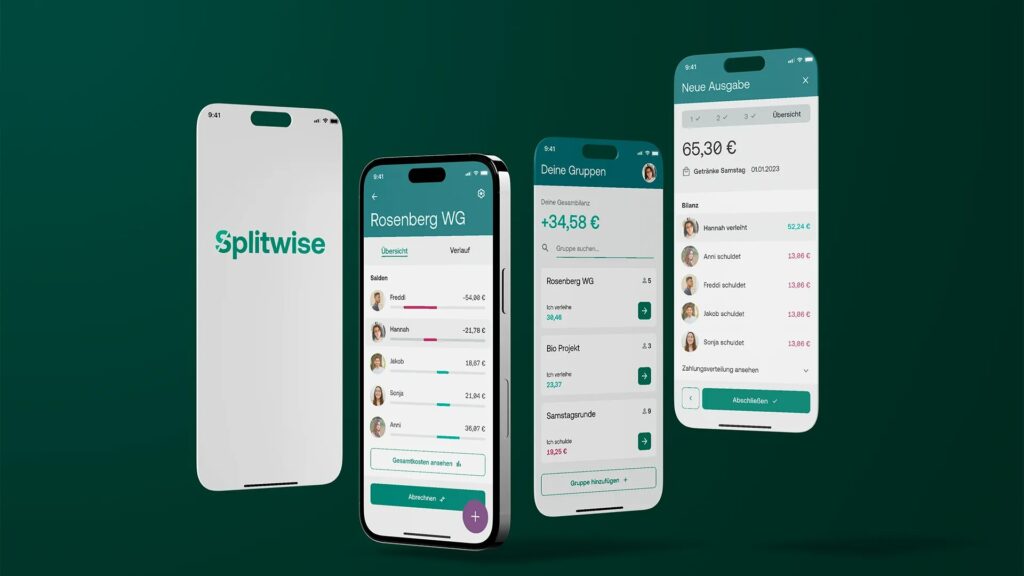
Citymapper
A traveller would usually avoid using public transit for two reasons: first, it is hard to find. Second, it is hard to follow up the schedule for the same. Citymapper precisely tackles these two issues for a traveller, so that they can effectively use public transit in any place, at any time. The arsenal of its transit services is not limited to just taxi, subway, train and bus, and also includes car share, bike share and ferry share.

Types of Travel Apps Businesses Can Develop
That’s the list of travel apps that companies can offer to overcome hospitality business’ engagement gap.
>> Ticket Booking Apps
Ticket booking app development allows the user to book rail or airline tickets for a specific destination. Scanning all third party sites, these apps will show the best options and help users to compare all travel and train options for their chosen dates.
You can also help them engage in full route planning by supplying flight, train and bus tickets. You can even send push alerts for their chosen dates when prices fall.
Your travel app needs to also contain various discounts and offers, including promo codes and “first booking” savings, to help travelers find the best offers to book the best deals.
For examples: Sky Scanner, Kayak, Expedia
>> Hotel Booking Apps
The hotel booking app will also give travelers access to all the details of various properties in a specific area or location. Users can see the best hotel offer using app and then check the prices / compare best price by using this mobile app.
With hotel booking app development you can also access lots of features in your app, for example room type, room photos, breakfast, check in date, check out dates, balcony views.
For example: Agoda.com, Hotels.com, Booking.com.
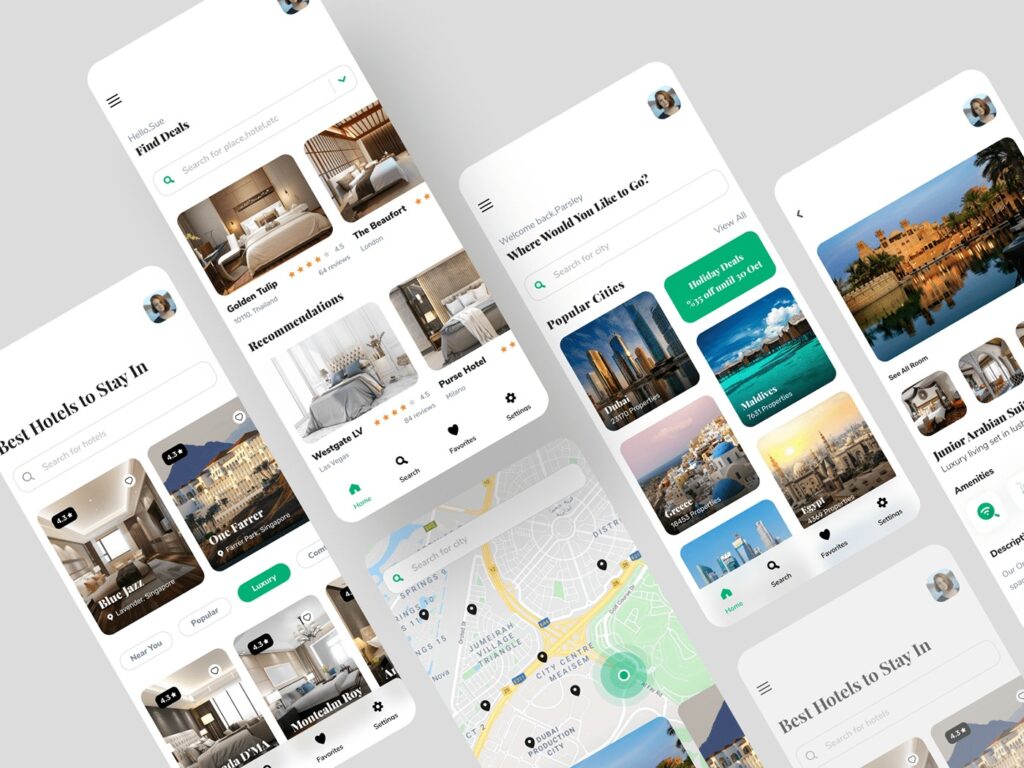
>> Travel Itinerary Planning Apps:
Travel itinerary planning app development can help users plan the global itinerary for their travels. You can add this capability to your travel apps. Just think of how appealing you can make your customers’ trip planning process by simplifying it and saving them time that they would typically spend planning a long journey.
Examples: Sygic Travel, TripIt, and Wanderlog.
>> Navigation Apps:
Designing a navigation app can help travelers find the best way to get from the airport or train station to the various locations they need to visit in the city.
The travel app that you will have created for Android and iOS can feature a traffic view, allow contact synching so they can track their contacts most recent check in, allow the counting of distance from their location to the destination while being able to see the most effective way to reduce traffic and allow for quickest travel from the airport or railway station to the hotel.
Examples: Komoot, Apple Maps, and Google Maps.
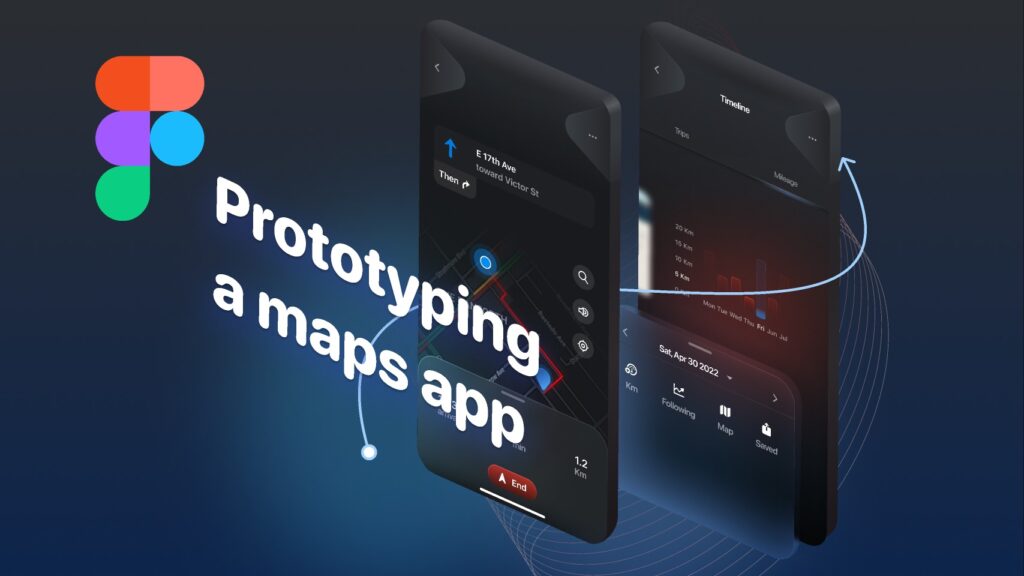
>> Transportation Apps
When exploring an unfamiliar city, travelers often simply download their preferred taxi ordering app directly onto their smartphones to be quickly taken to their destination. By utilizing a transportation app for delivery at your targeted customer, on-demand on-the-road buses, taxis, and booking alternatives will become available.
Travel app development enabling app users to travel safely will be made easier by allowing users to track their trip in real-time and providing driver information (e.g., driver’s name, driver’s picture, driver’s number plate, RC number) and their journey history at-a-glance.
Examples: Uber, Ola, and Lyft.
>> Travel Insurance Apps
Long-haul travelers face the possibility of lost luggage, theft, cancellation of travel, lost passport, health issues, booked airline or accommodations that were canceled by the provider, and the list goes on…
Travel insurance apps, will make provision(s) for such events to occur. Hospitality businesses could focus on travel insurance apps and increasing the bookings travelers made, along with accounts for booked travel insurance in the past or currently.
Examples: AIG Travel Help, Allianz TravelSmart
>> Travel Guide Apps
Travel guide apps will be beneficial to travelers providing information about events taking place, historic sites, or restaurants to eat at in a given location. The app is cost-effective and can be produced with materials providing information about the best guides in the city, the best restaurants, uh transit options, and tourism attractions.
Travel agency app development will enhance travelers vacation experience offering an app to book the best tour guides or best restaurants.
Examples: GetYourGuide, TripAdvisor, and Viator
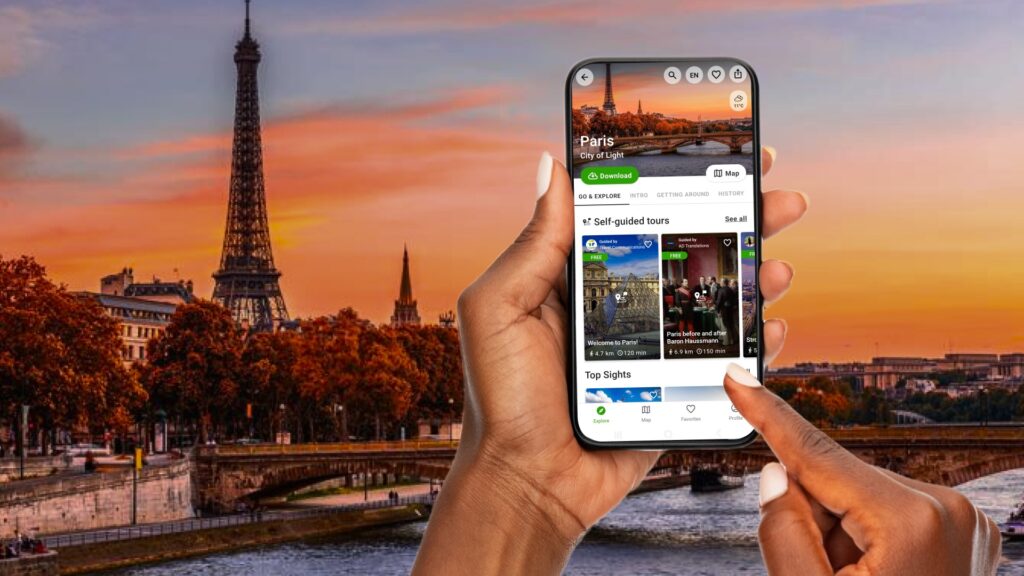
Conclusion:
The travel sector has been greatly influenced by the mobile app development sector, especially since the demand for digital technology has reached new highs. From what is fairly visible; traditional travel agencies offering travel packages are almost extinct and we see travellers leaning more and more on online travel agencies, hotel aggregators and travel services aggregators. In future, we may also see extensive use of business Intelligence services in making the travel sector more empowered than ever.


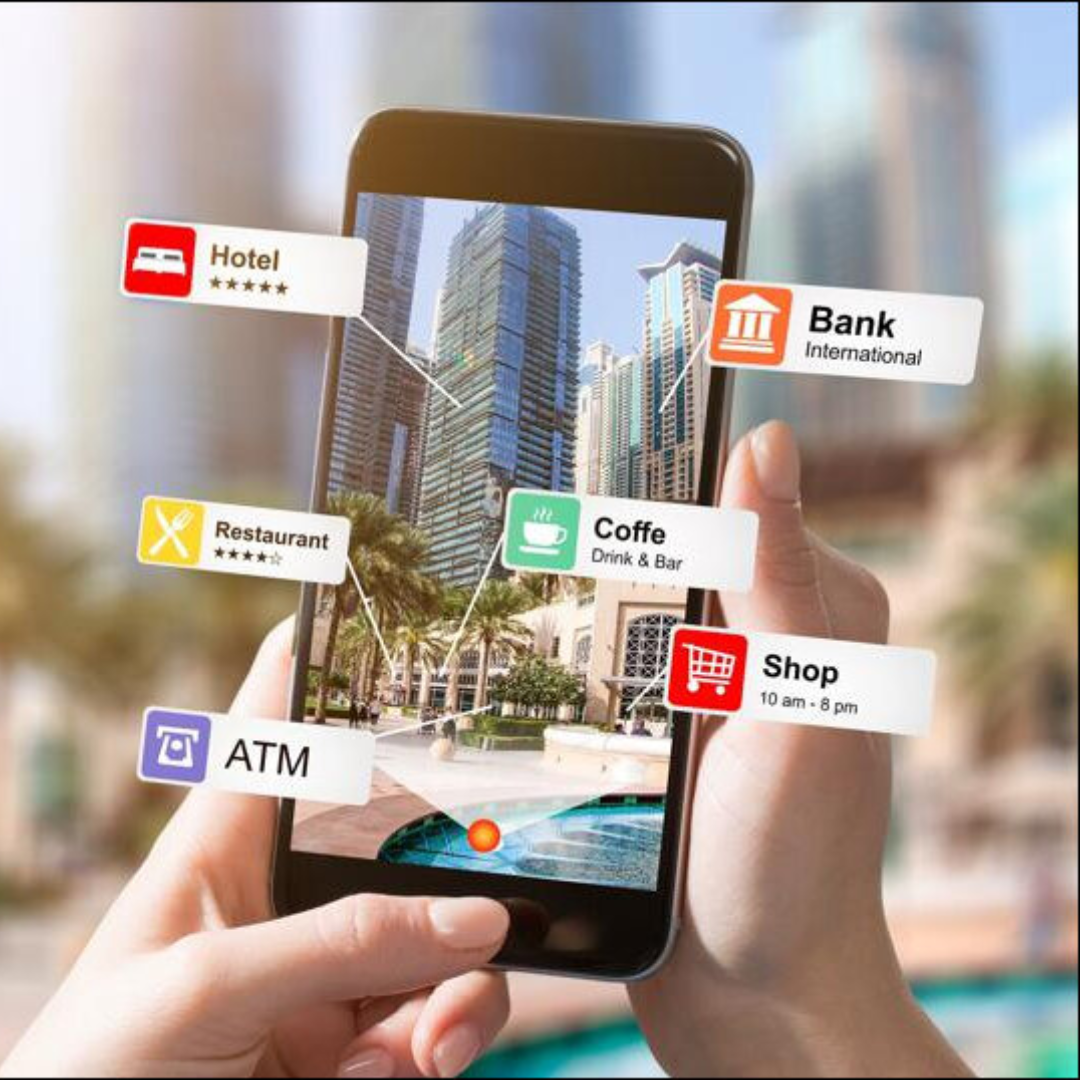
Leave feedback about this
You must be logged in to post a comment.